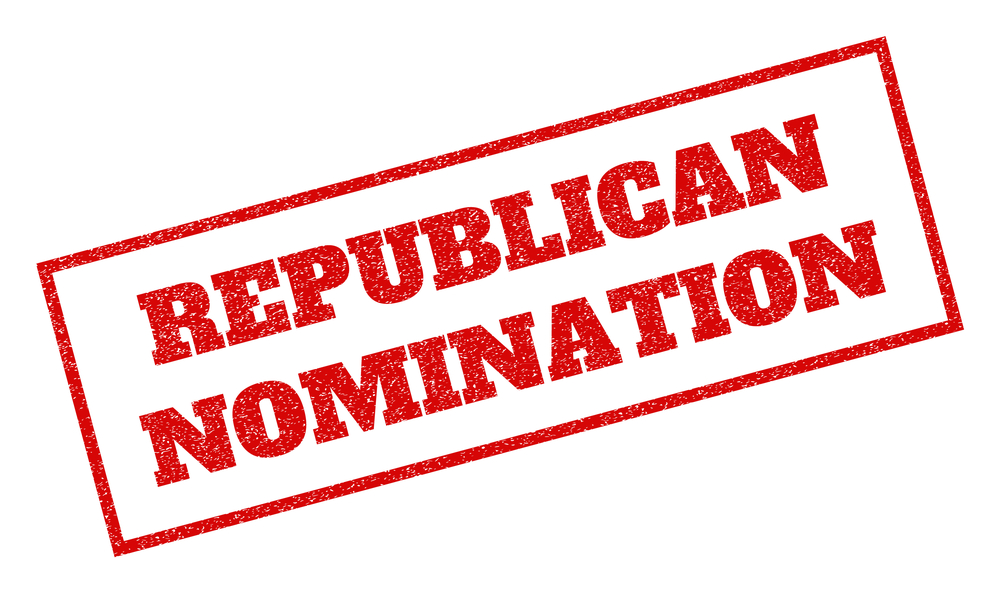La postura de los candidatos presidenciales del Partido Republicano respecto de la industria automotriz

La plataforma del Partido Republicano siempre ha hablado de cuestiones económicas. No debería sorprender que la industria aparezca en los debates y las campañas. El TPP (Asociación Transpacífica) ha sido analizado con lupa como algo que podría afectar a la industria automotriz. Ayer analizamos la postura que adoptaron los candidatos presidenciales demócratas en las primarias. Hoy analizamos la postura del Partido Republicano.
La semana pasada, la primera pregunta que se les hizo a los candidatos presidenciales durante su debate fue “si los acuerdos comerciales han sido buenos para los trabajadores estadounidenses”. El candidato principal, Donald Trump, ha hecho hincapié en su experiencia empresarial a la hora de criticar duramente lo que considera “acuerdos comerciales desastrosos” que, en su opinión, dieron lugar a la pérdida de puestos de trabajo en la industria automotriz que existían antes.
Por otra parte, los tres candidatos republicanos restantes, John Kasich, Marco Rubio y Ted Cruz, siguen apoyando los acuerdos comerciales “por principio”, aunque reconocen las preocupaciones de los votantes sobre los efectos de esos acuerdos. Cruz y Rubio abogan por el Acuerdo Transpacífico (TPP) de 12 naciones, que el presidente Obama ha dicho que quiere que el Congreso ratifique antes de dejar el cargo.
El Acuerdo Transpacífico es un acuerdo comercial que permite a las empresas automovilísticas extranjeras ensamblar automóviles en Estados Unidos. Las piezas pueden diseñarse, fabricarse y comprarse en otros países y, como incentivo, estas empresas trabajan con tasas e impuestos reducidos. “Hecho en Estados Unidos” es más bien “ensamblado en Estados Unidos”. Las normas del TPP se aplican a más de 12 países, incluidos Japón y China.
En 2000, el gobernador de Ohio, John Kasich, votó a favor de conceder los privilegios comerciales “normales” que permitieron a China entrar en la Organización Mundial del Comercio. El senador de Florida, Marco Rubio, votó dos veces a favor de dar al presidente Obama la autoridad para negociar acuerdos comerciales, incluido el Acuerdo Transpacífico. Considera que los acuerdos comerciales proporcionan “acceso a los mercados extranjeros”. El senador Ted Cruz votó una vez a favor de la autoridad comercial presidencial, pero dio marcha atrás en la votación posterior del año pasado. Cruz ahora dice que se opone al TPP.
En la actual campaña presidencial, el TPP ha sido un gran punto de discordia. La industria automotriz, como una de las piedras angulares de la manufactura y las exportaciones estadounidenses, está prácticamente en juego.
Considerada la capital automotriz de Estados Unidos, Detroit alguna vez albergó 300.000 empleos en el sector manufacturero y esa cifra aparentemente ha disminuido a sólo 30.000 empleos.
El senador estadounidense Ted Cruz culpó a los demócratas por esa caída (según CNN):
“Detroit es una gran ciudad con un legado industrial que ha sido totalmente diezmado por 60 años de políticas de izquierda. La industria automotriz prosperó hasta que los demócratas tomaron el poder con políticas débiles contra el crimen y expulsaron a la gente”.
En su discurso sobre la industria automotriz estadounidense y las supuestas amenazas que plantean la competencia extranjera y la subcontratación, Trump sostuvo que, si él fuera presidente, Ford Motor Co. no abriría ninguna planta en países extranjeros. Y dio a entender que ese era solo el comienzo de su estrategia para negociar mejores acuerdos comerciales en Estados Unidos y en todo el mundo con el fin de crear y salvar empleos.
“El trabajador estadounidense está siendo aplastado” por el comercio, escribió Trump en un artículo de opinión en USA Today:
“La situación está a punto de empeorar drásticamente si no se detiene el Acuerdo Transpacífico. Una de las primeras víctimas del TPP será la industria automotriz estadounidense.
Al igual que los candidatos demócratas, parece que todos están de acuerdo en que el TPP representa un gran problema para la industria automotriz y los empleos manufactureros estadounidenses en general. Sin embargo, la cuestión sigue siendo la solución: ¿ratificarlo o cancelarlo? ¡Déjenos saber lo que piensa en la sección de comentarios a continuación y exprese sus inquietudes sobre la cosecha de candidatos de este año!













Alex ha trabajado en la industria de servicios automotrices durante más de 20 años. Luego de graduarse de una de las mejores escuelas técnicas del país, se desempeñó como técnico logrando la certificación de Maestro Técnico. También tiene experiencia como asesor de servicios y gerente de servicios. Leer más sobre alex